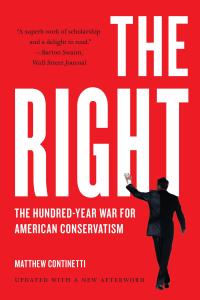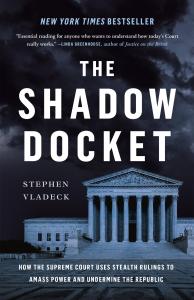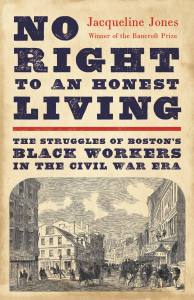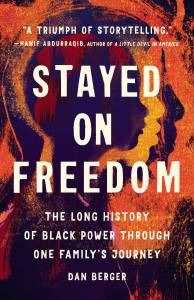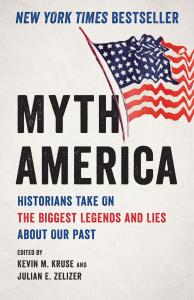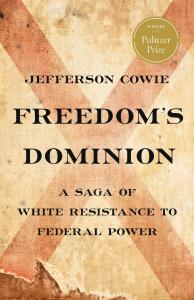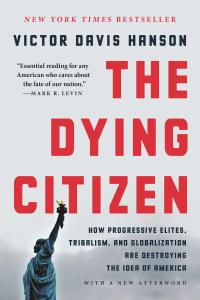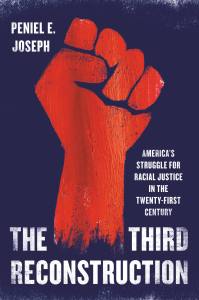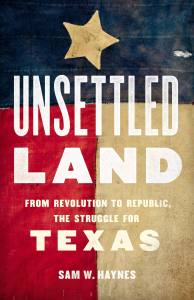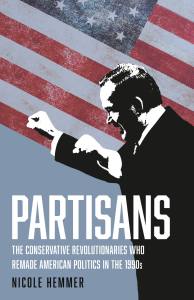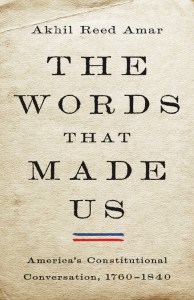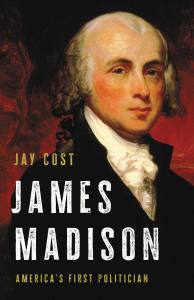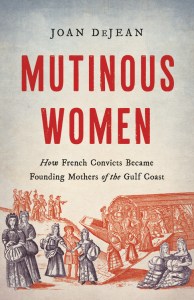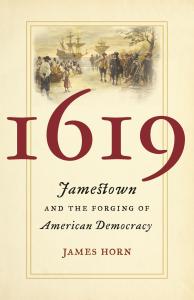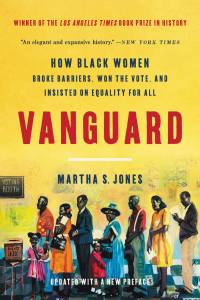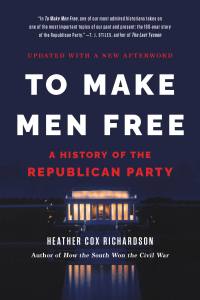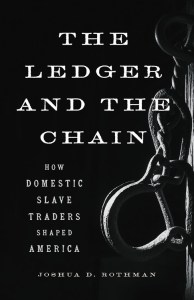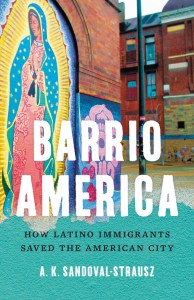Basic Books Independence Day Reads
Read up on American history and politics from the founding fathers to today’s political climate.
A “superb” and “ambitious” (New York Times) intellectual and political history of the last century of American conservatism
When most people think of modern conservatism, they think of Ronald Reagan. Yet this narrow view leaves many to question: How did Donald Trump win the presidency? And what is the future of the Republican Party?
In The Right, Matthew Continetti gives a sweeping account of movement conservatism’s evolution, from the Progressive Era through the present. He tells the story of how conservatism began as networks of intellectuals, developing and institutionalizing a vision that grew over time, only to see their creation buckle under new pressures from national populist movements. Drawing out the tensions between the desire for mainstream acceptance and the pull of extremism, Continetti argues that the more one studies conservatism’s past, the more one becomes convinced of its future.
Updated with a new epilogue, The Right is essential reading for anyone looking to understand American conservatism.
An instant New York Times bestseller: An acclaimed legal scholar’s “important” (New York Times) and “fascinating” (Economist) exposé of how the Supreme Court uses unsigned and unexplained orders to change the law behind closed doors.
The Supreme Court has always had the authority to issue emergency rulings in exceptional circumstances. But since 2017, the Court has dramatically expanded its use of the behind-the-scenes “shadow docket,” regularly making decisions that affect millions of Americans without public hearings and without explanation, through cryptic late-night rulings that leave lawyers—and citizens—scrambling.
The Court’s conservative majority has used the shadow docket to green-light restrictive voting laws and bans on abortion, and to curtail immigration and COVID vaccine mandates. But Americans of all political stripes should be worried about what the shadow docket portends for the rule of law, argues Supreme Court expert Stephen Vladeck. In this rigorous yet accessible book, he issues an urgent call to bring the Court back into the light.
At the height of the John Birch Society’s activity in the 1960s, critics dismissed its members as a paranoid fringe. After all, “Birchers” believed that a vast communist conspiracy existed in America and posed an existential threat to Christianity, capitalism, and freedom. But as historian Matthew Dallek reveals, the Birch Society’s extremism remade American conservatism. Most Birchers were white professionals who were radicalized as growing calls for racial and gender equality appeared to upend American life. Conservative leaders recognized that these affluent voters were needed to win elections, and for decades the GOP courted Birchers and their extremist successors. The far right steadily gained power, finally toppling the Republican establishment and electing Donald Trump.
Birchers is a deeply researched and indispensable new account of the rise of extremism in the United States.
A “sensitive, immersive, and exhaustive” portrait of Black workers and white hypocrisy in nineteenth-century Boston, from “a gifted practitioner of labor history and urban history” (Tiya Miles, National Book Award-winning author of All That She Carried)
Impassioned antislavery rhetoric made antebellum Boston famous as the nation’s hub of radical abolitionism. In fact, however, the city was far from a beacon of equality.
In No Right to an Honest Living, historian Jacqueline Jones reveals how Boston was the United States writ small: a place where the soaring rhetoric of egalitarianism was easy, but justice in the workplace was elusive. Before, during, and after the Civil War, white abolitionists and Republicans refused to secure equal employment opportunity for Black Bostonians, condemning most of them to poverty. Still, Jones finds, some Black entrepreneurs ingeniously created their own jobs and forged their own career paths.
Highlighting the everyday struggles of ordinary Black workers, this book shows how injustice in the workplace prevented Boston—and the United States—from securing true equality for all.
The Black Power movement, often associated with its iconic spokesmen, derived much of its energy from the work of people whose stories have never been told. Stayed On Freedom brings into focus two unheralded Black Power activists who dedicated their lives to the fight for freedom.
Zoharah Simmons and Michael Simmons fell in love while organizing tenants and workers in the South. Their commitment to each other and to social change took them on a decades-long journey that traversed first the country and then the world. In centering their lives, historian Dan Berger shows how Black Power united the local and the global across organizations and generations.
Based on hundreds of hours of interviews, Stayed On Freedom is a moving and intimate portrait of two people trying to make a life while working to make a better world.
The United States is in the grip of a crisis of bad history. Distortions of the past promoted in the conservative media have led large numbers of Americans to believe in fictions over facts, making constructive dialogue impossible and imperiling our democracy.
In Myth America, Kevin M. Kruse and Julian E. Zelizer have assembled an all-star team of fellow historians to push back against this misinformation. The contributors debunk narratives that portray the New Deal and Great Society as failures, immigrants as hostile invaders, and feminists as anti-family warriors—among numerous other partisan lies. Based on a firm foundation of historical scholarship, their findings revitalize our understanding of American history.
Replacing myths with research and reality, Myth America is essential reading amid today’s heated debates about our nation’s past.
With Essays By
Akhil Reed Amar • Kathleen Belew • Carol Anderson • Kevin Kruse • Erika Lee • Daniel Immerwahr • Elizabeth Hinton • Naomi Oreskes • Erik M. Conway • Ari Kelman • Geraldo Cadava • David A. Bell • Joshua Zeitz • Sarah Churchwell • Michael Kazin • Karen L. Cox • Eric Rauchway • Glenda Gilmore • Natalia Mehlman Petrzela • Lawrence B. Glickman • Julian E. Zelizer
An “important, deeply affecting—and regrettably relevant” (New York Times) chronicle of a sinister idea of freedom: white Americans’ freedom to oppress others and their fight against the government that got in their way.
American freedom is typically associated with the fight of the oppressed for a better world. But for centuries, whenever the federal government intervened on behalf of nonwhite people, many white Americans fought back in the name of freedom—their freedom to dominate others.
In Freedom’s Dominion, historian Jefferson Cowie traces this complex saga by focusing on a quintessentially American place: Barbour County, Alabama, the ancestral home of political firebrand George Wallace. In a land shaped by settler colonialism and chattel slavery, white people weaponized freedom to seize Native lands, champion secession, overthrow Reconstruction, question the New Deal, and fight against the civil rights movement. A riveting history of the long-running clash between white people and federal authority, this book radically shifts our understanding of what freedom means in America.
A New York Times bestseller, “The Dying Citizen is essential reading for any American who cares about the fate of our nation” (Mark R. Levin)
Human history is full of the stories of peasants, subjects, and tribes. Yet the concept of the “citizen” is historically rare—and was among America’s most valued ideals for over two centuries. But without shock treatment, warns Victor Davis Hanson, American citizenship may soon vanish.
In The Dying Citizen, Hanson outlines the forces that led to this crisis. The evisceration of the middle class has made many Americans dependent on the federal government. Open borders have undermined allegiance to a particular place. Identity politics have eradicated our collective sense of self. And a top-heavy state has endangered personal liberty.
The Dying Citizen is a clarion call to rebuild our collective national identity.
In The Third Reconstruction, distinguished historian Peniel E. Joseph offers a powerful and personal new interpretation of recent history. The racial reckoning that unfolded in 2020, he argues, marked the climax of a Third Reconstruction: a new struggle for citizenship and dignity for Black Americans, just as momentous as the movements that arose after the Civil War and during the civil rights era. Joseph draws revealing connections and insights across centuries as he traces this Third Reconstruction from the election of Barack Obama to the rise of Black Lives Matter to the failed assault on the Capitol.
America’s first and second Reconstructions fell tragically short of their grand aims. Our Third Reconstruction offers a new chance to achieve Black dignity and citizenship at last—an opportunity to choose hope over fear.
The Texas Revolution has long been cast as an epic episode in the origins of the American West. As the story goes, larger-than-life figures like Sam Houston, David Crockett, and William Barret Travis fought to free Texas from repressive Mexican rule. In Unsettled Land, historian Sam Haynes reveals the reality beneath this powerful creation myth. He shows how the lives of ordinary people—white Americans, Mexicans, Native Americans, and those of African descent—were upended by extraordinary events over twenty-five years. After the battle of San Jacinto, racial lines snapped taut as a new nation, the Lone Star republic, sought to expel Indians, marginalize Mexicans, and tighten its grip on the enslaved.
This is a revelatory and essential new narrative of a major turning point in the history of North America.
Ronald Reagan has long been lionized for building a conservative coalition sustained by an optimistic vision of American exceptionalism, small government, and free markets. But as historian Nicole Hemmer reveals, the Reagan coalition was short-lived; it fell apart as soon as its charismatic leader left office. In the 1990s — a decade that has yet to be recognized as the breeding ground for today’s polarizing politics — changing demographics and the emergence of a new political-entertainment media fueled the rise of combative far-right politicians and pundits. These partisans, from Pat Buchanan and Newt Gingrich to Rush Limbaugh and Laura Ingraham, forged a new American right that emphasized anti-globalism, appeals to white resentment, and skepticism about democracy itself.
Partisans is essential reading for anyone seeking to understand the crisis of American politics today.
Balanced, authoritative, and masterfully told, Dreams of El Dorado sets a new standard for histories of the American West.
How do you solve a problem like James Madison? The fourth president is one of the most confounding figures in early American history; his political trajectory seems almost intentionally inconsistent. He was both for and against a strong federal government. He wrote about the dangers of political parties in the Federalist Papers and then helped to found the Republican Party just a few years later. This so-called Madison problem has occupied scholars for ages.
As Jay Cost shows in this incisive new biography, the underlying logic of Madison’s seemingly mixed record comes into focus only when we understand him primarily as a working politician. Whereas other founders split their time between politics and other vocations, Madison dedicated himself singularly to the work of politics and ultimately developed it into a distinctly American idiom. He was, in short, the first American politician.
The secret history of the rebellious Frenchwomen who were exiled to colonial Louisiana and found power in the Mississippi Valley
In 1719, a ship named La Mutine (the mutinous woman), sailed from the French port of Le Havre, bound for the Mississippi. It was loaded with urgently needed goods for the fledgling French colony, but its principal commodity was a new kind of export: women.
Falsely accused of sex crimes, these women were prisoners, shackled in the ship’s hold. Of the 132 women who were sent this way, only 62 survived. But these women carved out a place for themselves in the colonies that would have been impossible in France, making advantageous marriages and accumulating property. Many were instrumental in the building of New Orleans and in settling Louisiana, Alabama, Arkansas, Illinois, and Mississippi.
Drawing on an impressive range of sources to restore the voices of these women to the historical record, Mutinous Women introduces us to the Gulf South’s Founding Mothers.
Along the banks of the James River, Virginia, during an oppressively hot spell in the middle of summer 1619, two events occurred within a few weeks of each other that would profoundly shape the course of history. In the newly built church at Jamestown, the General Assembly — the first gathering of a representative governing body in America — came together. A few weeks later, a battered privateer entered the Chesapeake Bay carrying the first African slaves to land on mainland English America.
In 1619, historian James Horn sheds new light on the year that gave birth to the great paradox of our nation: slavery in the midst of freedom. This portentous year marked both the origin of the most important political development in American history, the rise of democracy, and the emergence of what would in time become one of the nation’s greatest challenges: the corrosive legacy of racial inequality that has afflicted America since its beginning.
From Lewis and Clark’s 1804 expedition to the 2014 uprising in Ferguson, American history has been made in St. Louis. And as Walter Johnson shows in this searing book, the city exemplifies how imperialism, racism, and capitalism have persistently entwined to corrupt the nation’s past.
St. Louis was a staging post for Indian removal and imperial expansion, and its wealth grew on the backs of its poor black residents, from slavery through redlining and urban renewal. But it was once also America’s most radical city, home to anti-capitalist immigrants, the Civil War’s first general emancipation, and the nation’s first general strike—a legacy of resistance that endures.
A blistering history of a city’s rise and decline, The Broken Heart of America will forever change how we think about the United States.
“An elegant and expansive history” (New York Times) of African American women’s pursuit of political power—and how it transformed America
In Vanguard, acclaimed historian Martha S. Jones offers a new history of African American women’s political lives in America. She recounts how they defied both racism and sexism to fight for the ballot, and how they wielded political power to secure the equality and dignity of all persons. From the earliest days of the republic to the passage of the 1965 Voting Rights Act and beyond, Jones excavates the lives and work of Black women—Maria Stewart, Frances Ellen Watkins Harper, Fannie Lou Hamer, and more—who were the vanguard of women’s rights, calling on America to realize its best ideals.
Now revised to discuss the election of Vice President Kamala Harris and the vital contributions of Black women in the 2020 elections, Vanguard is essential reading for anyone who cares about the past and future of American democracy.
The United States is known as a nation of immigrants. But it is also a nation of xenophobia. In America for Americans, Erika Lee shows that an irrational fear, hatred, and hostility toward immigrants has been a defining feature of our nation from the colonial era to the Trump era. Benjamin Franklin ridiculed Germans for their “strange and foreign ways.” Americans’ anxiety over Irish Catholics turned xenophobia into a national political movement. Chinese immigrants were excluded, Japanese incarcerated, and Mexicans deported.
Today, Americans fear Muslims, Latinos, and the so-called browning of America. Forcing us to confront this history, Lee explains how xenophobia works, why it has endured, and how it threatens America. Now updated with an afterword reflecting on how the coronavirus pandemic turbocharged xenophobia, America for Americans is an urgent spur to action for any concerned citizen.
When Abraham Lincoln helped create the Republican Party on the eve of the Civil War, his goal was economic opportunity for all Americans. Yet the party quickly became mired in an identity crisis. Would it be the party of democratic ideals? Or the party of moneyed interests?
In To Make Men Free, acclaimed historian Heather Cox Richardson traces the shifting ideology of the Republican Party from the antebellum era to the Great Recession. While progressive Republicans like Teddy Roosevelt and Dwight Eisenhower revived Lincoln’s vision and expanded the government, their opponents appealed to Americans’ latent racism and xenophobia to regain political power, linking taxation and regulation to redistribution and socialism. In the modern era, the schism within the Republican Party has grown wider, pulling the GOP ever further from its founding principles.
Now with a new epilogue that reflects on the Trump era and what is likely to come after it, To Make Men Free is a sweeping history of the party that was once considered America’s greatest political hope, but now lies in disarray.
Slave traders are peripheral figures in most histories of American slavery. But these men—who trafficked and sold over half a million enslaved people from the Upper South to the Deep South—were essential to slavery’s expansion and fueled the growth and prosperity of the United States.
In The Ledger and the Chain, acclaimed historian Joshua D. Rothman recounts the shocking story of the domestic slave trade by tracing the lives and careers of Isaac Franklin, John Armfield, and Rice Ballard, who built the largest and most powerful slave-trading operation in American history. Far from social outcasts, they were rich and widely respected businessmen, and their company sat at the center of capital flows connecting southern fields to northeastern banks. Bringing together entrepreneurial ambition and remorseless violence toward enslaved people, domestic slave traders produced an atrocity that forever transformed the nation.
Thirty years ago, most people were ready to give up on American cities. We are commonly told that it was a “creative class” of young professionals who revived a moribund urban America in the 1990s and 2000s. But this stunning reversal owes much more to another, far less visible group: Latino and Latina newcomers.
Award-winning historian A. K. Sandoval-Strausz reveals this history by focusing on two barrios: Chicago’s Little Village and Dallas’s Oak Cliff. These neighborhoods lost residents and jobs for decades before Latin American immigration turned them around beginning in the 1970s. As Sandoval-Strausz shows, Latinos made cities dynamic, stable, and safe by purchasing homes, opening businesses, and reviving street life. Barrio America uses vivid oral histories and detailed statistics to show how the great Latino migrations transformed America for the better.
